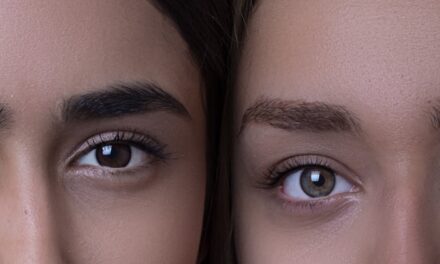Permanent implants used to get rid of wrinkles could cause severe allergic reactions months later, doctors have warned.
They found patients developed problems a year after having implants injected, with some women having recurrent side effects.
A report in the Archives of Dermatology journal throws doubt on the safety of “polyalkylimide implant gels” – otherwise known as “facial fillers”.
These are injected for a long-lasting change to facial lines compared with the more widespread use of temporary fillers in the UK.
Women and doctors need to be alert to the possibility of delayed reactions, said Dr Jaume Alijotas-Reig, of Vall d’Hebron University Hospital and Autonomous University of Barcelona, Spain.
They looked at 25 patients who developed adverse reactions more than a year after having implants injected.
Polyalkylide implants consist of a compound of gel and water which are used to improve the appearance of facial features such as lips, cheeks, forehead and lower facial lines between the nose and mouth.
Dr Alijotas-Reig said: “According to the manufacturer’s information, polyalkylimide structures do not change over time and do not move or migrate.
“In the early reports on polyalkylimide implant injections for cosmetic purposes, there were no significant signs of biocompatibility, which means rejection of or reaction to the foreign material.
“However, more recent evidence refutes these statements and so the complete safety of polyalkylimide implant gels can no longer be assured.”
Patients developed side effects such as swelling, hardening of the area, lumps near the injection site, fever, arthritis and dry eyes or mouth.
Eight patients had previously been injected with another implant and laboratory abnormalities were found in 20 cases.
After an average of 21 months of follow-up, 11 patients were free of adverse effects and 10 still had recurrent bouts.
The report says some patients may be sensitive to the use of more than one type of cosmetic skin filler which would lead to delayed side effects.
Consultant plastic surgeon Nigel Mercer, president elect of the British Association of Aesthetic Plastic Surgeons, said plastic surgeons are already aware of the problems of using permanent implants as fillers for facial lines.
He said: “They have a poor history of causing problems in facial tissue including red lumps that can only be removed surgically which leaves scarring.
“They may be used in some circumstances, but need to be injected deep beneath the skin’s surface.
“Much more common are hyaluronic acid dermal fillers which are used just below the skin surface, give a temporary effect and have a low incidence of side effects or allergy.”


















